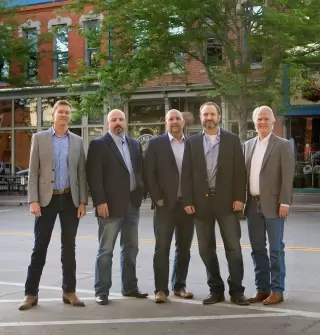If you've recently been involved in a crash with a large commercial truck or semi-truck, you may have experienced one of the most devastating types of collisions: an underride crash. The
truck accident lawyers at Metier Law Firm want you to know that it's crucial to understand what these crashes are, why they're so dangerous, and how recent safety improvements might affect your case.
Metier Law Firm Truck Accident Attorney
Mike Chaloupka explains - "Underride crashes are a hidden danger on our roads, often resulting in severe injuries or fatalities. If you've been involved in a truck accident, it's crucial to understand the unique risks associated with underride crashes and how recent safety improvements might affect your case. By knowing your rights and working with an experienced truck accident attorney, you can ensure that your interests and rights are protected.”
What is an Underride Crash?
An underride crash occurs when a smaller vehicle, like your car, goes partially
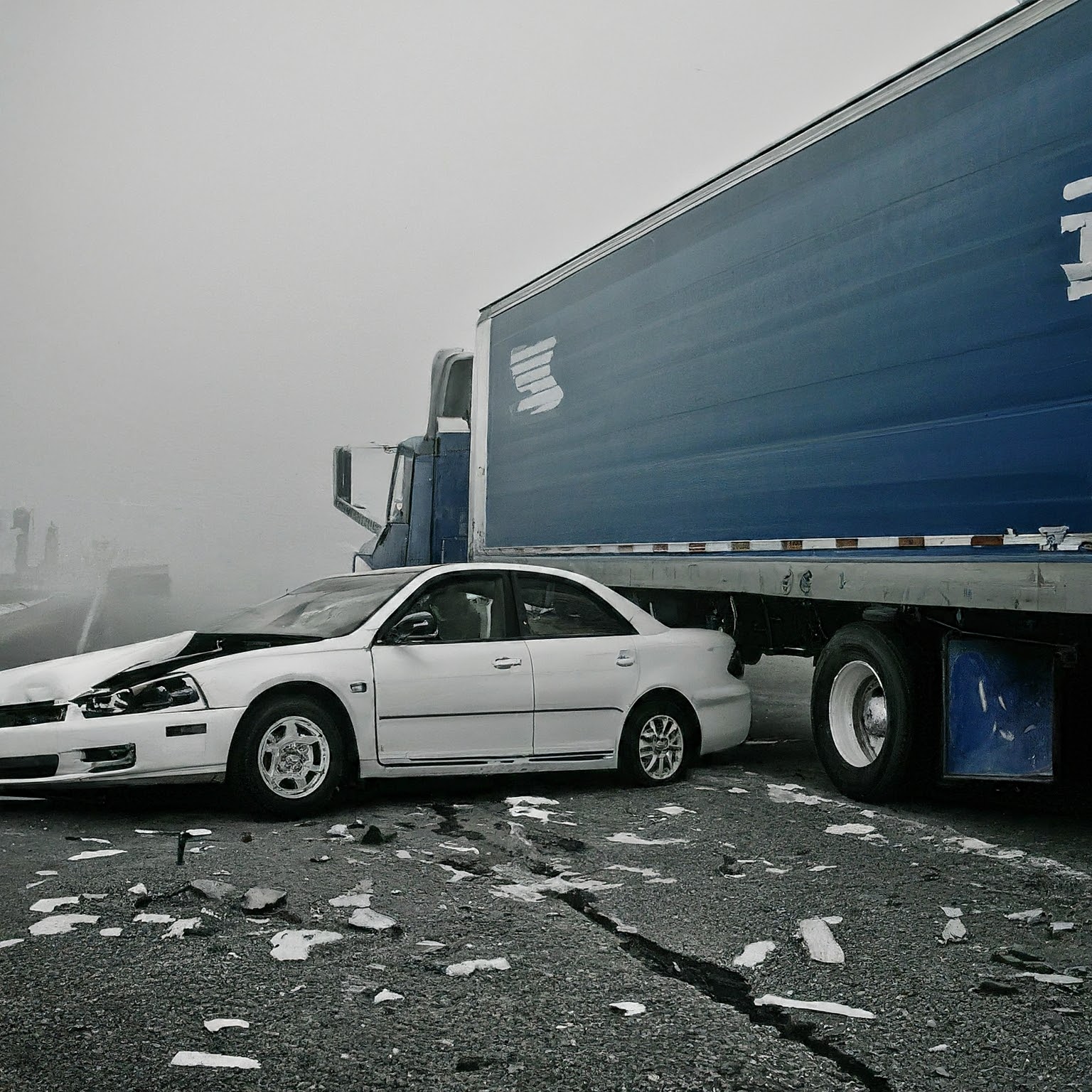
or completely under a truck or trailer. These types of truck accidents with cars are particularly dangerous, often resulting in severe injuries or fatalities. In fact, a study by the
Insurance Institute for Highway Safety (IIHS) found that underride occurred in half of all fatal crashes between large trucks and passenger vehicles.
Underride Guards: A Critical Safety Feature
Underride guards are protective barriers designed to prevent smaller vehicles from sliding beneath a truck during a collision. While rear underride guards are mandatory, side and front guards are not required in the United States. This lack of comprehensive protection can lead to more severe injuries in certain types of collisions.
Research by the
Insurance Institute for Highway Safety (IIHS) suggests that side underride guards could reduce injury risk in about 75% of serious side-impact collisions with large trucks (
Brumbelow, 2012). IIHS estimates that mandating side underride guards could save 160-220 passenger vehicle occupant lives annually.
If your accident involved sliding under any part of the truck, the presence or absence of underride guards could be a crucial factor in your case.
The Dangers of Underride Crashes
Underride crashes are especially hazardous because they can:
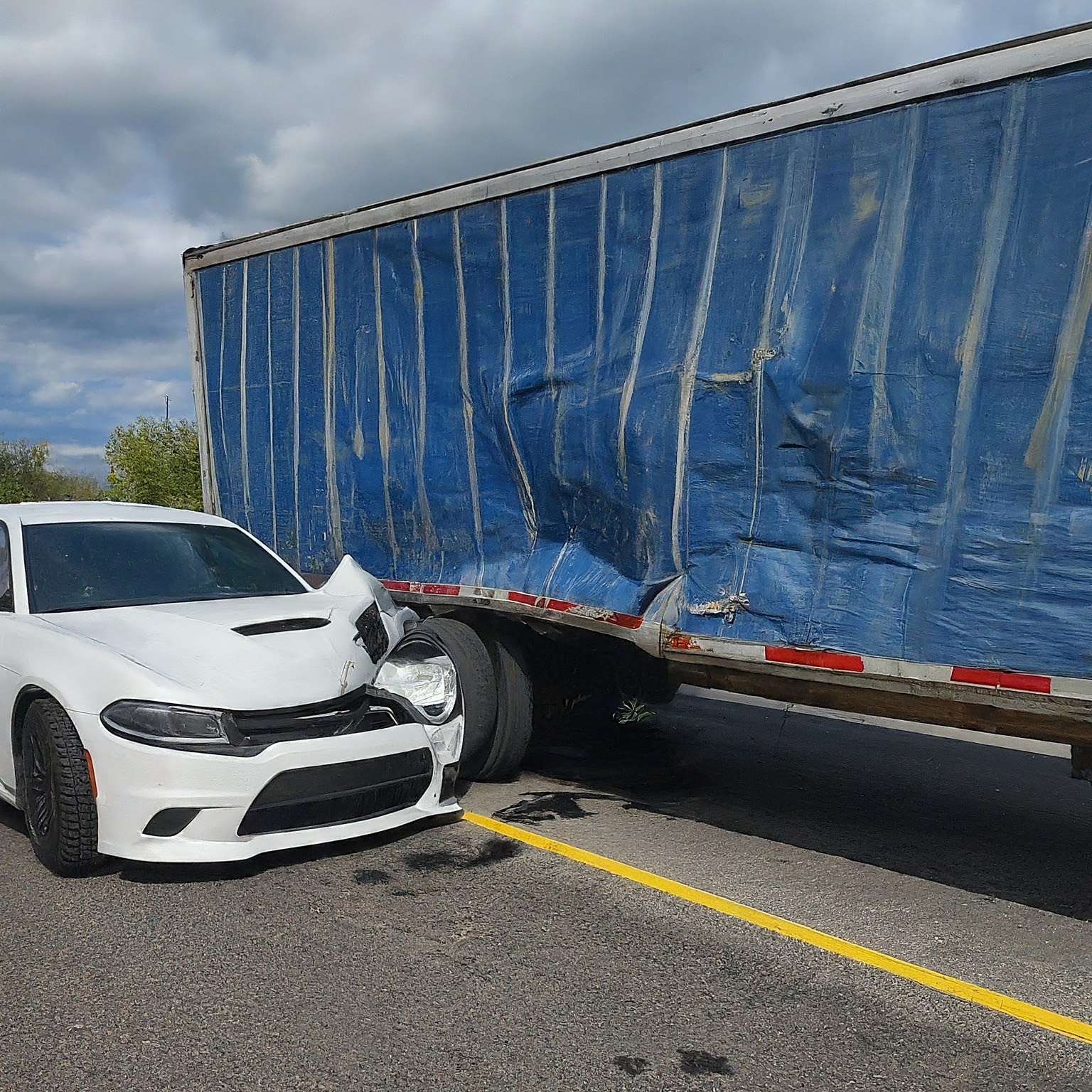
● Bypass your vehicle's primary safety features
● Result in severe head and upper body injuries
● Increase the likelihood of fatalities
Types of Underride Crashes
Underride crashes can happen in several ways:
Rear underride - when a smaller vehicle collides with the rear of a large commercial tractor-trailer, causing the smaller vehicle to slide underneath the trailer. (22% of cases according to
Braver et al., 1997)
Common causes of rear underride crashes include:
●
Tailgating: Following too closely behind a truck can make it difficult for the driver to stop in time if the truck suddenly brakes.
●
Sudden braking: If a truck driver brakes suddenly, it can be difficult for a following driver to avoid a rear-end collision.
●
Truck driver negligence: Factors such as distracted driving, fatigue, or impairment can contribute to rear underride crashes.
Side underride - when a smaller vehicle collides with the side of a large commercial tractor-trailer, causing the smaller vehicle to slide underneath the trailer's side guard or underride guard. (20% of cases according to Braver et al., 1997)
Common causes of side underride crashes include:
●
Turning or merging: When a smaller vehicle turns or merges into a lane occupied by a tractor-trailer, the smaller vehicle may be struck on the side, leading to an underride crash.
●
Driver error: Factors such as distracted driving, speeding, or failure to yield can contribute to side underride crashes.
Front underride - when a smaller vehicle collides with the front of a large commercial tractor-trailer, causing the smaller vehicle to slide underneath the trailer's front bumper or underride guard. (57% of cases according to Braver et al., 1997)
Common causes of front underride crashes include:
●
Head-on collisions: A head-on collision with a tractor-trailer can potentially lead to a front underride crash if the smaller vehicle strikes the front of the trailer.
●
Driver error: Factors such as speeding, impaired driving, or failure to yield can contribute to front underride crashes.
Recent Safety Improvements and Regulations
If you've been in an underride crash, it's important to know about recent safety improvements and regulations:
1. Rear Underride Guards: In 2022, the
National Highway Traffic Safety Administration (NHTSA) finalized a
rule requiring stronger rear underride guards on large trucks. This rule aligns U.S. regulations with stricter Canadian standards.
2. IIHS TOUGHGUARD Award: Since 2017, the IIHS has been recognizing trailer manufacturers that go beyond federal requirements with their
TOUGHGUARD award. Nine North American trailer manufacturers now produce guards that qualify for this award.
3. Ongoing Safety Concerns: Despite these improvements, safety advocates argue that more needs to be done, especially for offset crashes and single-unit trucks.
What This Can Mean for Your Case
If you've been involved in an underride crash with a commercial truck,
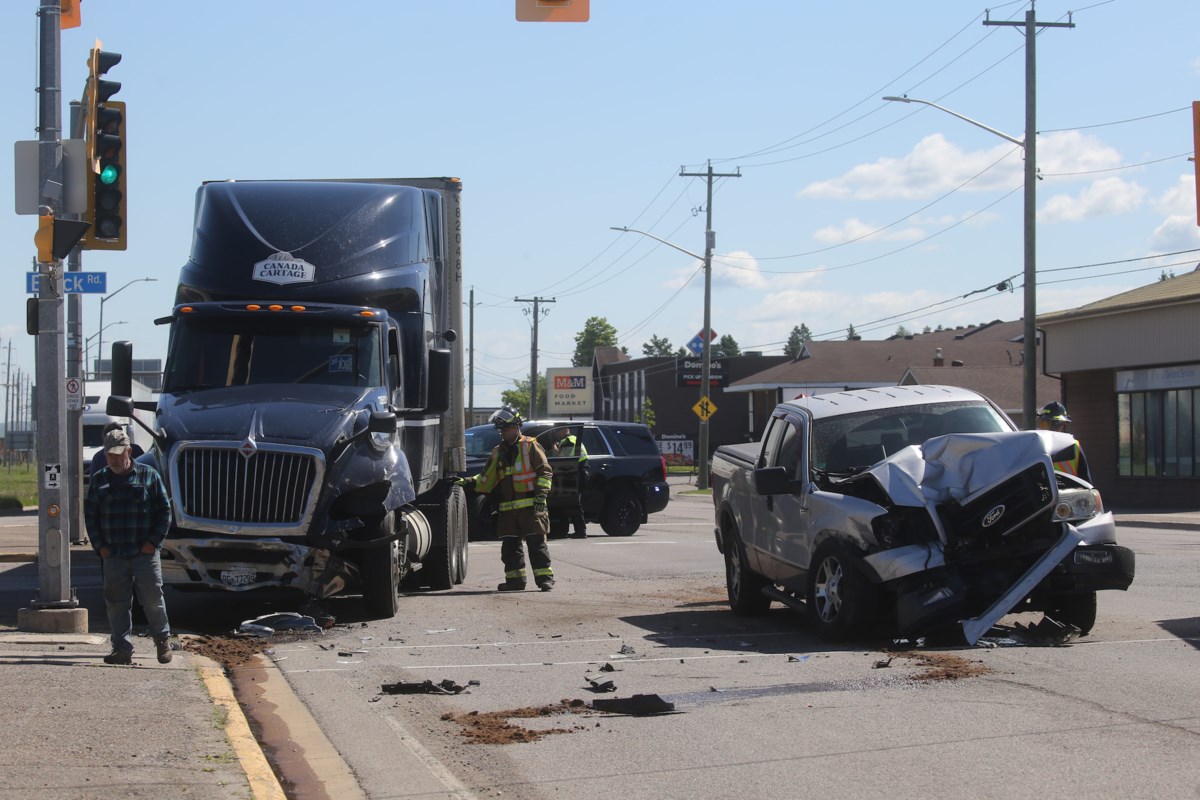
consider the following:
1. Guard Compliance: Investigate whether the truck involved in your accident had an underride guard that met or exceeded federal standards.
2. Manufacturer Responsibility: If the truck had an outdated or substandard guard, the manufacturer might bear some responsibility.
3. Trucking Company Liability: The trucking company may be liable if they failed to maintain or properly install underride guards.
4. Recent Regulation Impact: If your accident occurred recently, determine if the truck should have been equipped with the newer, stronger guards required by the 2022 regulation.
5. Expert Analysis: Work with an experienced attorney who can bring in experts to analyze the underride guard's performance in your specific crash scenario. Choosing a firm with NBTA Board Certified Truck Accident Attorneys on staff is crucial, as board certified truck accident attorneys have more in-depth experience and knowledge when it comes to these types of cases than the standard personal injury attorney will have.
Your Rights as a Truck Accident Victim
As someone injured in a truck accident, you have specific rights that are important to understand and protect:
1. Right to Compensation: You may be entitled to compensation for various damages, including:
● Medical expenses (current and future)
● Lost wages and loss of earning capacity
● Pain and suffering
● Emotional distress
● Property damage
● Loss of enjoyment of life
2. Right to a Thorough Investigation: You have the right to a comprehensive investigation of the accident. This will include access to things like:
● The truck's black box data (Electronic Control Module)
● Driver logs and hours-of-service records
● Truck maintenance records
● The trucking company's safety record and compliance history
3. Right to Legal Representation: You have the right to hire an attorney to represent your interests. Truck accident cases can be complex, often involving multiple parties (the driver, trucking company, insurance companies, etc.). An experienced attorney can navigate and manage these issues on your behalf.
4. Right to Fair Treatment: Insurance companies must treat you fairly and act in good faith when processing your claim. This includes conducting a proper investigation, responding to claims promptly, and not engaging in deceptive practices.
5. Right to Privacy: While you may need to disclose certain medical information related to your accident injuries, you maintain the right to privacy regarding unrelated personal matters.
Steps to Take After a Truck Accident
1. Seek Immediate Medical Attention: Your health is the top priority. Some
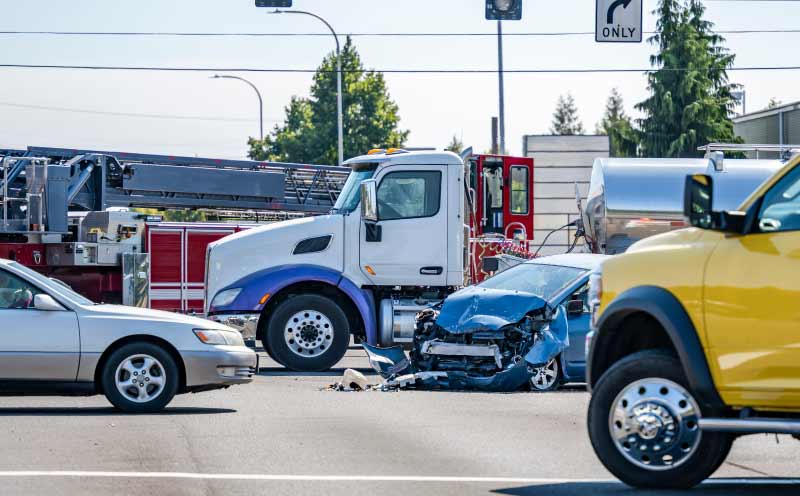
injuries may not be immediately apparent, so it's crucial to get a thorough medical evaluation.
2. Document Everything: If possible, take photos of the accident scene, gather witness information, and keep records of all medical treatments and expenses. Start a "pain journal" to document how your injuries affect your daily life.
3. Be Cautious When Speaking with Insurance Companies: Remember, their goal is to minimize payouts. It's often best to let your lawyer handle these communications to protect your interests.
4. Preserve Evidence: Don't repair your vehicle until it has been properly documented and examined. Your attorney can help ensure that crucial evidence (like the truck's black box data) is preserved for your case.
5. Consider Legal Representation: Given the complexity of truck accident cases, it's advisable to consult with an experienced attorney who specializes in this area of law. Many offer free initial consultations.
6. Follow Your Treatment Plan: Adhere to your doctor's recommendations and attend all follow-up appointments. This is crucial for your recovery and demonstrates the seriousness of your injuries.
7. Don't Rush to Settle: Insurance companies may offer a quick settlement, but it's important to understand the full extent of your injuries and long-term needs before accepting any offers.
Conclusion
Recovering from a truck accident can be a long and challenging process. Understanding the unique aspects of these accidents, your rights as a victim, and the steps you can take to protect your interests is crucial in securing the compensation you deserve.
Remember, you don't have to navigate this complex situation alone. Seeking the guidance of an experienced truck accident attorney like the ones on our team at Metier Law Firm can help ensure that your rights are protected and that you receive fair compensation for your injuries and losses.
Your recovery is the priority. Let a knowledgeable legal team handle the investigation and negotiation while you focus on getting better. You've been through a traumatic experience, but with the right support and information, you can move forward with confidence, knowing that your interests are being protected every step of the way.
Call Metier Law Firm today at (866) 377-3800 or visit us online at metierlaw.com to fill out our
free consultation request. Offices in
Fort Collins,
Denver,
Colorado Springs (CO),
Portland (OR),
Bellevue (WA),
Casper,
Gillette Cheyenne (WY) and
Omaha (NE).


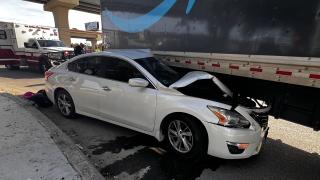
 or completely under a truck or trailer. These types of truck accidents with cars are particularly dangerous, often resulting in severe injuries or fatalities. In fact, a study by the Insurance Institute for Highway Safety (IIHS) found that underride occurred in half of all fatal crashes between large trucks and passenger vehicles.
or completely under a truck or trailer. These types of truck accidents with cars are particularly dangerous, often resulting in severe injuries or fatalities. In fact, a study by the Insurance Institute for Highway Safety (IIHS) found that underride occurred in half of all fatal crashes between large trucks and passenger vehicles.

 consider the following:
consider the following: injuries may not be immediately apparent, so it's crucial to get a thorough medical evaluation.
injuries may not be immediately apparent, so it's crucial to get a thorough medical evaluation.